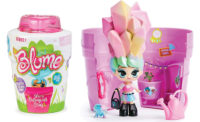PMMI Column
Impact of COVID-19 on the Packaging Industry

When the global COVID-19 pandemic hit, PMMI used its position as the convener of the makers of goods along with their packaging and processing suppliers to consistently monitor the effects on the industry and provide avenues to keep parties informed. One of the resources PMMI provided was a weekly Virtual Town Hall Series: Conducting Business in Uncertain Times. These webinars brought together consumer packaged goods companies, original equipment manufacturers and industry experts together to discuss the virus’ effect on packaging throughout the supply chain.
As COVID-19 began closing non-essential businesses and all but shutting down states in late March, PMMI also created a Weekly Pulse of the Industry survey to offer some indicating metrics about the impact on packaging machinery manufacturers. Results, as recent as April 26, reveal that due to its status as an essential industry, most responding companies are working (83%) with capacity use levels approaching 95%. The food, beverage and healthcare industries are some of the sectors seeing increasing demand, as consumers continue to rely on the items they manufacture during quarantine.
In some cases, like with food, the same amount of product is necessary. However, the product initially slated for foodservice use — like dine-in restaurants, school cafeterias and sports stadiums — now must be re-portioned and repacked into more retail-friendly sizes and containers. Consumer packaged goods companies that relied on materials and ingredients from some of the harder-hit areas of the country like New Jersey and New York, as well as China and parts of Europe, initially struggled to find alternative supply chains. Respondents to PMMI’s survey did indicate, however, that these struggles weren’t crippling business. Nevertheless, results also showed a fear that things could change at any minute, as further results note that 39% of PMMI members consulted reported at least some level of disturbance in their sourcing processes.
The general theme of cautious optimism comes with the caveat that the supply chain, and what it looks like in a few months, paints an uncertain future. International air freight travel is down significantly, limiting resources to supplies available within any given country’s borders. COVID-19 outbreaks at food processing plants, like Smithfield’s Foods, Sioux Falls, South Dakota facility, forced one of the largest processing facilities in the U.S. to shut down. The agriculture and food sectors will become strained as similar outbreaks are occurring at other processing plants, potentially changing the food supply chain entirely.
The overlying issues facing packaging is the effect the economy is having on companies that fall into areas that aren’t thriving during the pandemic. Those CPGs and OEMs are hard-pressed to find funds to maintain their businesses and keep their employees. The federal government has passed several emergency relief bills meant to resolve the liquidity crisis many companies are facing. To help the industry better understand the options, PMMI hosted a webinar in April as part of its Virtual Town Hall Series: Conducting Business in Uncertain Times, with former U.S. Congressman Rick Lazio (NY) and former Senior Counsel and Tax Counsel to the U.S Senate Committee on Finance, Dean Zerbe. The pair discussed possibilities available, including the Paycheck Protection Program and relief provisions from past recessions that are still in place to help.
For more COVID-19 Resources or to view the webinar, visit pmmi.org/coronavirus.
PACK EXPO International and Healthcare Packaging EXPO will be held Nov. 8-11 at McCormick Place in Chicago. Produced by PMMI, the show offers a projected 30,000 attendees the opportunity to gather insights from more than 2,000 exhibiting companies over 900,000 net square feet of exhibit space as well as network with industry peers. Register at packexpointernational.com.
Looking for a reprint of this article?
From high-res PDFs to custom plaques, order your copy today!







